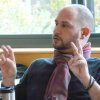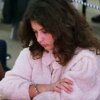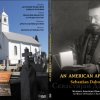At the Fernand Braudel Center at the SUNY Binghamton he initiated a research project on utopistics: a study of possible alternatives to the capitalist world-system. His interest in world systems analysis and anarchist theory influences his research perspective that includes experiences of self-organization, solidarity, voluntary association, and mutual aid on the world-scale. His other research interests include history of the Balkans and activist ethnography. His most recent book is Don't Mourn, Balkanize: Essays After Yugoslavia (2010). He teamed up with the legendary activist and historian Staughton Lynd to write the book Wobblies and Zapatistas, which has been internationally praised. Shortly after that, he went on to edit The Staughton Lynd Reader and offer a new programmatic proposal for the "libertarian socialism for the 21st century," inspired by Lynd's work.
Grubačić is also a contributor to Capital and Its Discontents and numerous other publications. He is one of the founding members of the Global Balkans network, the Yugoslav Initiative for Economic Democracy, Z-Balkans, and a program director of the Global Commons. His expertise in social movements and global political affairs is praised as original, impressive, and captivating. Grubačić is associated with Retort, a group of independent writers, artists, artisans, and teachers based in the San Francisco Bay Area.






